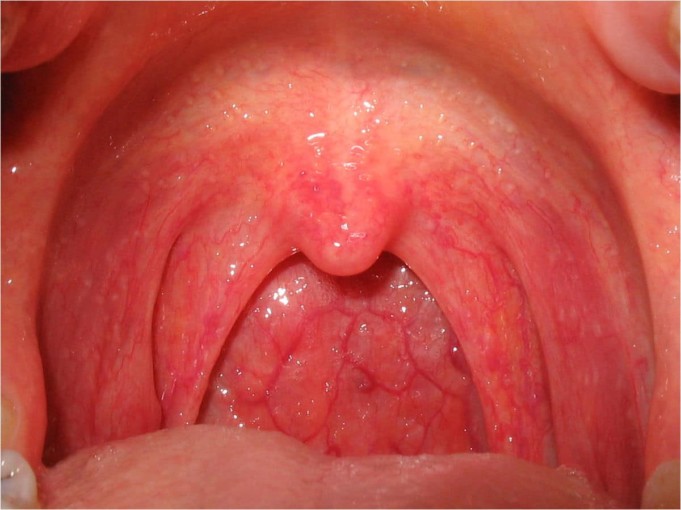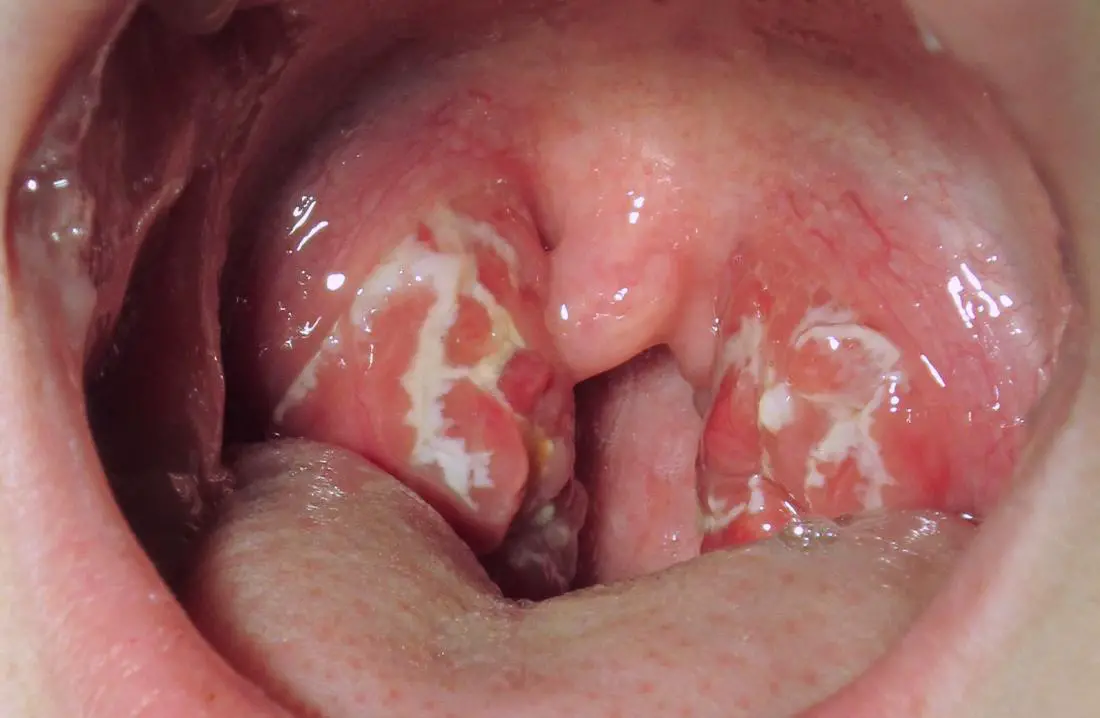Strep throat, also known as streptococcal pharyngitis, is an infection affecting the tonsils and the back of the throat. Group A Streptococcus is responsible for this infection.
One to three days after exposure to the bacteria, symptoms begin to appear and it lasts for 7 to 10 days.
Causes of Strep Throat
Strep throat is caused by bacteria. But before these bacteria can affect your throat or tonsils, certain factors must have played positive roles in making it happen.
For instance, smoke, dust, and many other irritants in the air can make these bacteria hostile. What most people don’t know is that Streptococcus pyogenes live in your nose and throat.
They are part of your normal gut flora. A weak immune system, toxicity, dehydration, intake of unnatural foods, nutritional deficiencies, and a high level of stress and emotional problems can change the condition of your body.
This will give the strep bacteria a conducive environment to multiply and cause problems. If you can avoid all that I mentioned above, you can prevent strep throat and other infections caused by streptococcus.
Also, strep throat is highly contagious but people with a strong immune system have a higher chance of resistance than those with a compromised or weak immune system.
Strep throat can also be contracted by sharing eating utensils with an infected patient and even a doorknob.
People down with strep throat cough or sneeze out droplets, this makes strep an airborne infection. But with an active and alert immune system, you are protected.
There are also reports that viruses also cause strep throat. This is why antibiotics don’t work sometimes. This is why it is also difficult to tell the difference between the symptoms of strep throat and that of a viral infection.
However, a good way to know the difference is that strep throat doesn’t have cold symptoms like runny nose, sneezing, and cough, only viral infections do.
Symptoms of Strep Throat
Common symptoms of strep throat are:
- Sore throat
- White patches in the throat
- Fever
- Tiny red spots on the roof of the mouth
- Enlarged lymph nodes
- Loss of appetite
- Red and inflamed tonsils
- Stomach ache
- Nausea and vomiting
- Headache
- Sandpaper-like rash (scarlet fever)
The severity of these symptoms varies from person to person. It might be mild in some people but severe in others. In severe cases, one might have difficulty swallowing due to inflammation.
Home Remedies for Strep Throat
Raw honey
Intake of raw honey daily can help boost your levels of antioxidants. This will help boost your immune system. Honey also has antimicrobial properties, this makes it a wonderful home remedy for strep throat.
Honey also helps create a moist condition for your throat and its thick consistency creates a protective barrier to prevent infection. Raw honey has strong antibacterial property even against antibiotic-resistant bacteria that are responsible for life-threatening infections.
Oil pulling
This reduces the presence of strep bacteria in your mouth. It is also done regularly to maintain healthy oral health. One of the best oils to use is coconut oil.
It is an oral detox and it removes bacteria from the mouth. It sucks up toxins from hidden places and creates a clean and germ-free environment.
Pour 2 tablespoons of coconut oil in your mouth and swish it around your mouth for 10 minutes. spit put the oil, rinse your mouth, and brush your teeth.
Elderberry
This herb has powerful antiviral and antibacterial effects. It guards against respiratory infections when taken occasionally and it even protects you from respiratory problems during long flights.
Elderberry can be taken as teas, syrup, powder, capsules, or tinctures. Take it according to the prescription and check with your doctor first if you are on any medication.
Herbal teas
You have to increase your intake of herbal teas during a strep throat infection. They help boost your immune system, relieve inflammation, reduce pain, and hasten healing.
Some of the herbal teas to take are ginger, turmeric, cinnamon, dandelion, chamomile, cloves, green tea, licorice, marshmallow, etc. They relieve symptoms and hasten healing.
Bone broth
This boosts hydration and helps maintain essential minerals needed for optimal health. It also boosts your immune system and contains nutrients that your body can easily absorb.
Bone broth also contains important nutrients like glucosamine and chondroitin sulfate which help to reduce joint pain and swelling.
Essential oils
There are long lists of essential oils you can try. We have peppermint, lemon, and thyme. Peppermint soothes a sore throat, it also reduces swellings in the throat and it is used in treating a lot of respiratory infections.
Add 1 or 2 drops of peppermint oil in a warm glass of water and drink. You can apply it on your toothpaste while brushing or you apply 1-2 drops topically on your temples, chest, and throat.
Lemon oil has strong antibacterial properties. It also expels toxins from the body. Lemon oil also stops the growth of antibiotic-resistant bacteria.
You can add 2 drops of lemon oil to any drink of yours or warm water and take. Thyme oil is another wonderful home remedy for strep throat. It has a strong antibacterial property against over 120 strains of bacteria.
It also treats anti-biotic resistant bacteria. Add thyme oil to a cup of warm water and gargle. You can also add two drops of thyme oil to your bathwater.
Echinacea
This herb helps prevent cold and due to its immune-enhancing properties, it stops the spread of bacterial infections. It contains a phytochemical called Echinacea which main function is to prevent pathogens from entering the cells.
It also relieves pains and infection thereby relieving the symptoms of strep throat. Echinacea also relieves body aches, headaches, and sore throat. It reduces swellings in the throat and tonsils.
You can take Echinacea in liquid form (tea), or the form of capsules. Do this daily until the symptoms go.
Raw garlic
Garlic has anti-inflammatory properties. It also kills bacteria and also cures congested nose and airways. It relieves throat pain and pain in the larynx.
Cut three cloves of garlic into tiny pieces and expose to air for a few seconds. Swallow these using a warm glass of water. Do this three times daily until you recover.
Onions can also help. Inhale onions or juice onions and add three tablespoons a cup of warm water and drink.
Apple cider vinegar
Sip ACV regularly. The acetic acid present in this liquid kills dangerous bacteria but aid the growth of good ones in the body. It kills unwanted bacteria when it comes in contact with it.
This makes it a natural antibiotic.
Fenugreek seeds
They produce a mucilaginous secretion. This creates a protective and slippery film on your respiratory passage. It relieves rash, inflammation, and pain very fast.
It is used to relieve strep throat in both children and adults. Boil a teaspoon of fenugreek in a cup of water and sieve. When warm, add honey or lemon or both and drink. Do these two times daily until you heal.
Vitamin C and D
Vitamin C helps in boosting your immune system, thereby helping it fight against the virus. It also helps in repairing the damaged tissues in your throat and tonsils and reduces your risks of other infections.
If you want to fight an oncoming infection, take 1,000 mg of vitamin C, if you are already down with an infection and you want to get rid of it, take 4,000 mg of vitamin C.
If you have a strep throat, you can take vitamin C supplements along with oranges, kale, grapefruit, strawberries, kiwi, and other vitamin C-rich foods.
Make them into smoothies and take if you have difficulty swallowing.
Studies have shown that there is a link between respiratory infection and vitamin D deficiency. Vitamin D also plays a huge role in immune response and it has antimicrobial properties.
Gargling
Gargling with Himalayan salt water reduces swellings and inflammation. This soothes your sore throat and creates a hostile environment for the disease pathogen.
Salt also temporarily increases the pH of your mouth to an alkaline state. In this state, it is hard for bacteria and other pathogens to survive.
Himalayan salt also improves the conditions of your respiratory system because of its antibacterial property. Its anti-inflammatory properties also expel pathogens from the mouth when gargled or swallowed.
When treating a strep throat, make sure you avoid contact with people so you don’t spread it. Don’t sneeze or cough on others or objects. Don’t share eating utensils with people, and wash your dishes properly with a powerful and natural soap.
Also, wash your hands regularly and replace your toothbrush after the infection. While you are recovering, avoid the following foods:
- Alcohol
- Carbonated beverages
- Caffeinated drinks
- Fast foods
- Oily foods
- Ice creams
- Cold and sugary drinks
With the above tips, you should be able to prevent and treat strep throat at home.
References;













